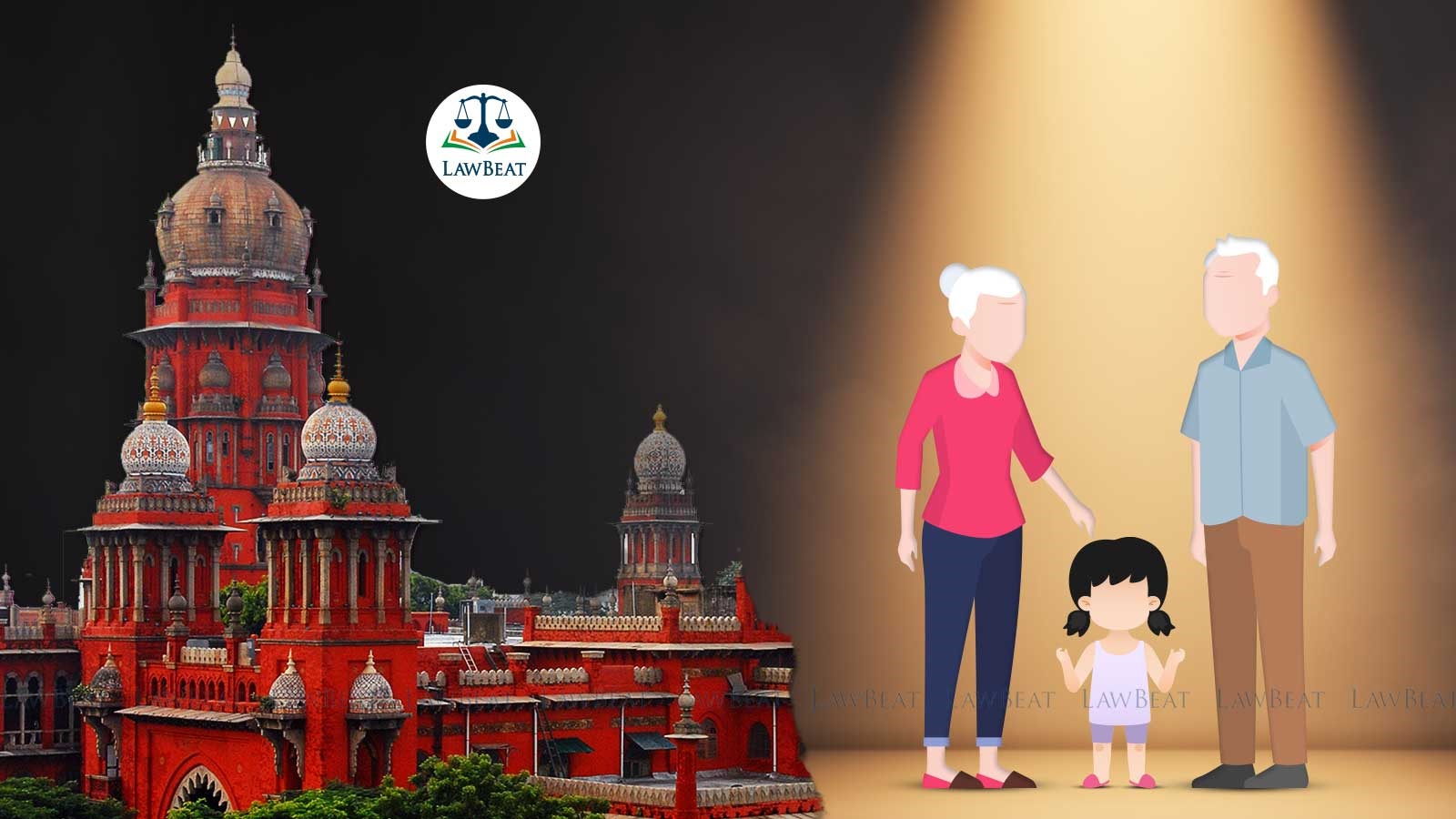An affectionate relationship with grandparents beneficial for child: Madras HC upholds visitation rights to grandparents

The grandparents cannot be denied reasonable access/visitation rights, which will also help the child's normal development, court said
While upholding the visitation rights of the grandparents to visit granddaughter living with her mother, the Madras High Court recently observed that an affectionate relationship with grandparents is recognised as beneficial for the child.
Court noted that in the case at hand, since the child was so small, therefore, despite the fact that she had been under the grandparents' care since birth, the mother could claim custody over her. However, "the grandparents cannot be denied reasonable access/visitation rights, which will also help the child's normal development," court held.
The bench of Justices R. Mahadevan and Mohammed Shaffiq emphasised, "In custody/guardianship matters, the courts have to consider the welfare of the minor child, which is a paramount consideration".
Importantly, the bench pointed out that the family system in the country is rapidly eroding. Therefore, the bench said that in child custody matters "to ensure that there is overall development of the minor child and there is proper environment and upbringing of the child, the best interests of the child are taken care of".
The high court was dealing with an appeal moved by the mother of a minor child aged 2½ years. The mother had challenged the decision of the court below granting twice-per-month visitation rights to the child's paternal grandparents.
The case of the grandparents was that following the death of their son a year after the birth of the minor child dispute arose between them and the child's mother leading to registration of criminal cases against them. Thereafter, an agreement was reached during the investigation, granting custody of the child to the mother with visitation rights for the grandparents. However, the mother refused to allow visitation. Consequently, the grandparents sought visitation rights and custody of their grandchild through the court below which ultimately granted custody to the child's mother and visitation rights to them.
Before the high court, the mother's counsel contended that following their son's death, the child's grandparents unjustly accused the mother, spreading baseless rumors and labeling her as inauspicious.
Additionally, he asserted that when the child's maternal grandparents arrived to take their daughter and her child, the paternal grandparents locked themselves in a room with the child. Consequently, the maternal grandparents had to leave only with their daughter.
The child's mother also alleged that the paternal grandparents neglected the child's health, resulting in infections. She further claimed that they once threatened to throw the child from the third floor.
Therefore, her counsel argued that the grant of visitation rights to the child's paternal grandparents would affect the welfare of the child.
On the contrary, the counsel for the grandparents argued that they had already been deeply affected by the death of their only son and since the economic postition of the child's maternal grandparents ' was very limited, therefore, the child's future was better with them.
The high court said that it could not go into the allegations levelled by both the parties against each other at the present stage, it could only consider whether the grant of visitation rights to the child's grandparents by the court below was sustainable.
Upon weighing the totality of facts and circumstances of the case, the high court, though upheld the grant of visitation rights to the grandparents, it restricted it to once every month.
Case Title: A.Aashifa Begum v. Khader Beevi and M.A.Amanullah Khan
